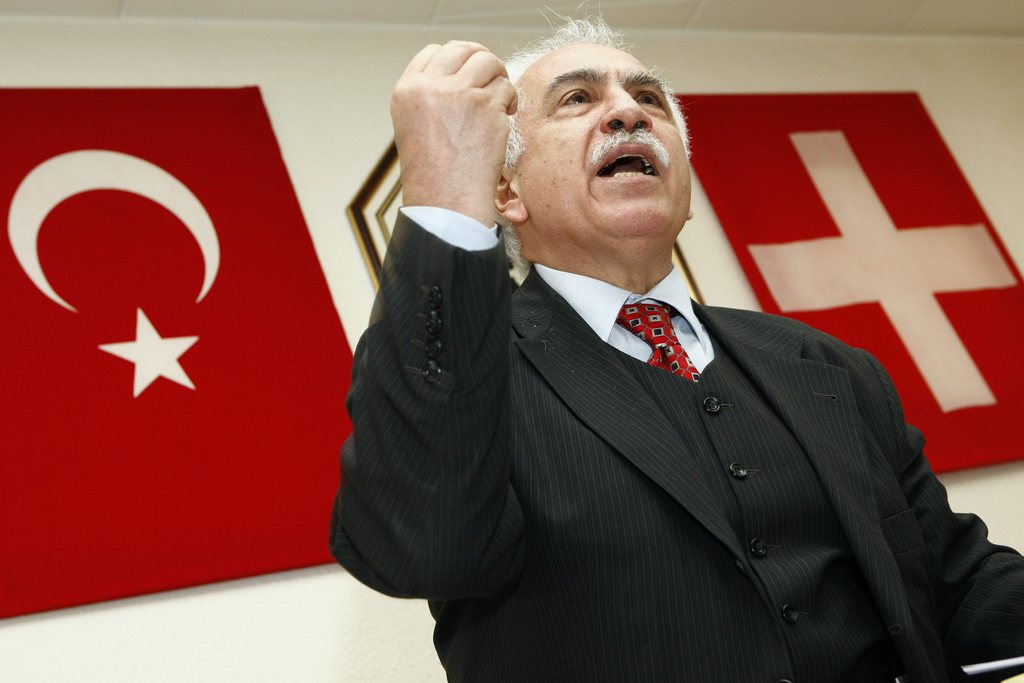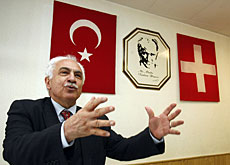Genocide denial case failure dents anti-racism norm

The decision by the European Court of Human Rights (ECHR) to accept an appeal against a sentence for genocide denial has led to calls from some quarters for a revision of Switzerland’s anti-racism legislation.
The Strasburg-based court ruled that Switzerland violated the Turkish nationalist Doğu Perinçek’s right to free speech when it fined him for denying the 1915 Armenian genocide in a 2005 speech.
Perinçek, who was the head of the left-wing Turkish Workers’ Party, was found guilty of racial discrimination in 2007 after he called the genocide “an international lie” during a public talk in the city of Lausanne.
For the Neue Zürcher Zeitung newspaper, the ECHR’s decision is the result of Switzerland trying to take the fight against racism of all forms too far.
“The penal norm was infused with political correctness and the idea that politicians and society were not strong enough to fight racist and anti-foreigner sentiment,” it wrote.
However, it added, this decision does not mean the law should be revised, but rather judges should take more care in applying it. “In a free and open society, individual opinions and dissent should not be silenced by the penal code, even if they are heresies or the ideas are stupid, indecent, provocative or shocking,” the NZZ pointed out.
For Zurich’s other major newspaper, the Tages-Anzeiger, the ECHR ruling is problematic as Perinçek denied there was any genocide against the Armenians on more than one occasion.
“His appearances were defamatory, insulting and rabble-rousing,” it added. “It was precisely for this kind of case that Swiss voters accepted the anti-racism norm in 1994.”
The Strasburg decision, it wrote, threatens to do away with what had been a coherent court practice, a situation that has opponents of the anti-racism norm “rubbing their hands with glee”.
Changes demanded
One of those opponents is Christoph Blocher, a former justice minister and rightwing Swiss People’s Party parliamentarian, who said in 2006 while still a cabinet member and just returning from Turkey, that people should be able to express their opinion, even if you do not agree with it.
Blocher, who has also said in the past he is wary of foreign judges sticking their noses in Swiss affairs, had little to complain about this time round, telling the Tages-Anzeiger the court was right because the anti-racism norm was poorly designed.
“That someone can be found guilty because of an opinion that does not offend anyone’s honour or harm them is not right,” he said, “even when the opinion expressed is wrong.”
For Blocher, the anti-racism norm had led to unnecessary legal procedures and limited freedom of expression. His party will demand changes to the legislation in the next few months, he added.
Whether they will succeed is a different matter. Blocher tried to get the law modified while he was still minister, but the cabinet tossed out his proposal at the last meeting he attended.

In compliance with the JTI standards
More: SWI swissinfo.ch certified by the Journalism Trust Initiative












You can find an overview of ongoing debates with our journalists here . Please join us!
If you want to start a conversation about a topic raised in this article or want to report factual errors, email us at english@swissinfo.ch.